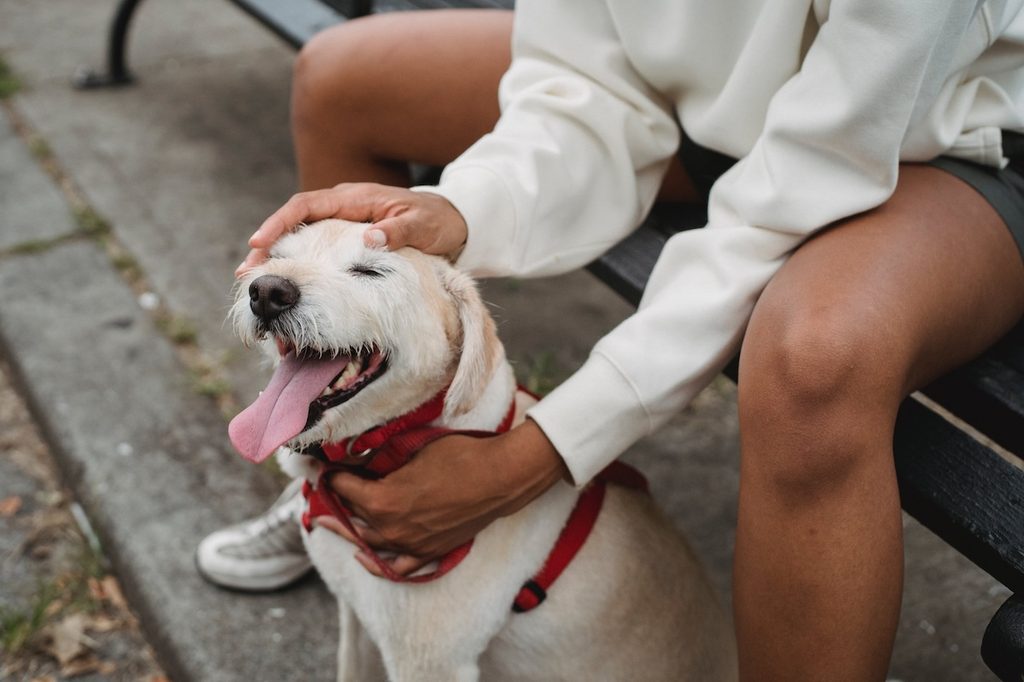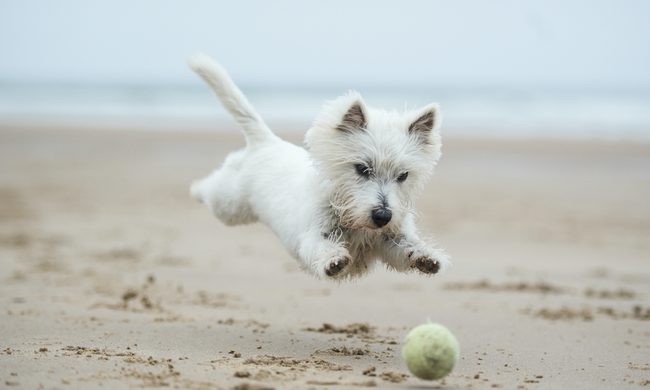
Watching the funny sitting and sleeping positions our pets come up with has to account for at least half the joy of dog ownership. It seems that our beasties generally gravitate to one area for their naps, whether that’s the left side of the bed, under the table, or on top of a human.
While some of this makes sense, it can be surprising when your dog sits on you in a weird way, especially on your feet. So why do dogs lay on your feet? Using your feet as a resting spot has a long history and stems from a few pretty interesting instincts.
Why do dogs lay on your feet?

Dogs seem to enjoy lying on our feet, and we like it, too. In fact, many people in history have used this pup habit to their advantage, with some dogs seemingly bred for this exact purpose. The shih tzu. in particular, used to sit on the feet of royalty in China, going back about 2,000 years. And many other furry friends have likely sat on their humans throughout time. Why, though, has this trope continued across cultures? There are four distinct reasons.
Love
We’re covering the big one first. Your pup pup loves to give you affection and get pets in return. “Often when dogs sit on our feet, it’s because they want to be close to us,” said Dr. Mary Burch, Ph.D., a certified applied animal behaviorist to the American Kennel Club. “It’s one way a dog shows affection. Think of your dog sitting on your feet as the canine version of a hug or cuddle.” When your animal tries to snuggle up on your feet, take that as a sign of your enduring bond.
Warmth
Sometimes, your dog sits on you for the simplest reason: They’re cold! In the wild, when the temperature drops, canines huddle together to stay warm outside. Your house probably rarely reaches such frigid temps, but that doesn’t mean they never shiver. In addition to lying on or near your body, you may also find Fido hiding under the covers or in a soft dog bed for a little extra heat. Of course, if you have more than one pet, you’re used to seeing the lot of them crushed together.
Anxiety
Warmth and love are the beneficial reasons your pooch might come and lay on your feet but sometimes they’re motivated by fear and anxiety rather than happiness. Taking your pet with you to a new location, for example, can cause your perfectly well-adjusted four-legger to turn into a Velcro dog. Other things that spark this behavior include changes to the routine, a new addition to the household, or a thunderstorm. Being near you helps to assuage that underlying anxiety because they know you’ll protect the whole family.
Guarding
On the flip side, sometimes a scary situation leads your dog to decide they’re going to take care of you instead. They may feel threatened by a person, another animal, or something totally innocuous like the vacuum cleaner, but they’ll rush to your side or even position their body between you and the attacker. This is normal behavior much of the time and certainly to be expected. However, you don’t want to encourage aggression toward people. Work with a trainer if your dog guards you too much or accompanies it with growling and snapping.
Why do dogs sleep at your feet?

Dogs sleep at our feet for the same reasons they sit down on us, but it also stems from a few other instincts. First, many times puppies sleep with their littermates by their mom’s feet for safety, warmth, and easy access to nursing. They remember that comfort and try to recreate it in adulthood, so the theory goes.
Additionally, many burrowing breeds, like terriers, might only want to sleep wrapped up in a makeshift blanket fort since they were traditionally trained to dig and scurry through holes in pursuit of rodents and other prey. Lastly, surprisingly enough, your feet may be the safest place for them in the bed if you frequently change positions during the night or the warmest if you run hot.
No matter the underlying reason, it’s very sweet when our dogs sleep or sit on our feet. In some circumstances, you may need to discourage the behavior, if it’s related to resource guarding or you can’t seem to catch enough z’s with your buddy there. But most of the time, you should let your pet snuggle up against your legs and take it as a sign that they love you.




